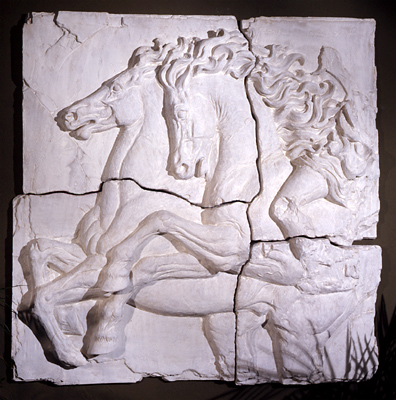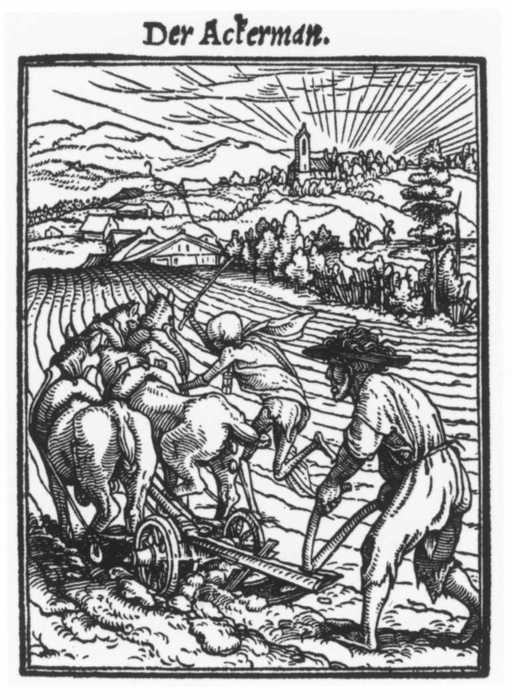
Respect, or Fear?
I was nervous. This was my first cross-country trip, and by myself, no less. My driver delivered me to the stables at 9:00 am, punctual as planned. I walked from the van to the barn hesitantly, and heard the crunch of the van tires in gravel, as my last opportunity to flee left without me. I’m a country girl, a western rider, and honestly, seldom get off the farm. What on earth made me think I should fly across the country and ride in a dressage barn? I was certain I had made an impulsive and reckless decision which would have financial and emotional repercussions for months to come.
The arena was covered, but only had half sidewalls, so I was able to see my new instructor on horseback upon my approach. The melody of a classical piece playing over the intercom was soothing, and I quickly spotted his wife and attempted to make my way through the barn to reach her. My thoughts and course were interrupted, however, as the rider approached the wall near me.
“Tell her her hair looks nice,” were his first words to me that day. “She just got her hair cut, and is a little self-conscious about losing her long braid.” That bit of information put a big smile on my face. I’ve always been a fan of irony. Oh, ok, SHE is the one feeling self-conscious today. I, however, had a job to do. It was time to send my self-absorbed fears and insecurities packing. I needed to go shower my host with complements, and find out how I could be useful at this stable. Country girl that I am, I appreciated that I was needed, and promptly set forth to complete the assigned “task”.
After the subsequent introductions and flattery, I was left to watch the instructor ride until my session was to begin. His wife left to tend to horse chores, but I soon noticed I wasn’t alone. There was a young man on staff, working farther down the stable isle, behind my bench seat. I studied the rider, but often my attention would drift to this young man, as I was curious about his duties at the stable. I had never before visited a barn with staff or grooms. I was curious about the requirements of his position. I watched him work that morning to clear the aisle of horse “debris”, before and after bringing in and exiting the morning’s line-up of horses. His work was surprisingly slow and quiet. He was seldom interrupted to be given instruction, or chided to hurry along. He worked to clear the aisle, an ordinary task, but then habitually followed it with a ritual I had never before seen. Dragging the manure fork, tines down, he would make diagonal patterns in the sand. First this way; then that. This way; then that. He continued down the aisle, the entire length of the arena, throughout the day. As the pattern would become marred by tracks and debris, he would scoop up the droppings and then repair the pattern.
I watched this young man intermittently throughout my first days there. It wasn’t until the third day, while I was taking my lunch break, that he, the instructor's wife and I were together, and I had the opportunity to ask about this pattern.
It was the young man who responded. “The instructor likes it done this way, so I try to keep it this way.”
He went on to explain the story of how our teacher came upon this practice, and why he likes it done, but the details were not of particular interest to me, and I’ve since forgotten them. What has stayed with me, is the willingness, no, ENTHUSIAM, with which this young man served his teacher. I don’t even recall whether the young man had been asked to keep the aisle this way, or whether he had noticed someone else doing it, and followed suit. The origination isn’t so important; what was important was that the request was delivered in such a way as to be well received, and the service was rendered willingly and happily.
“FAITH and FEAR make poor bedfellows. Where one is found, the other cannot exist.” Napoleon Hill
The arena was covered, but only had half sidewalls, so I was able to see my new instructor on horseback upon my approach. The melody of a classical piece playing over the intercom was soothing, and I quickly spotted his wife and attempted to make my way through the barn to reach her. My thoughts and course were interrupted, however, as the rider approached the wall near me.
“Tell her her hair looks nice,” were his first words to me that day. “She just got her hair cut, and is a little self-conscious about losing her long braid.” That bit of information put a big smile on my face. I’ve always been a fan of irony. Oh, ok, SHE is the one feeling self-conscious today. I, however, had a job to do. It was time to send my self-absorbed fears and insecurities packing. I needed to go shower my host with complements, and find out how I could be useful at this stable. Country girl that I am, I appreciated that I was needed, and promptly set forth to complete the assigned “task”.
After the subsequent introductions and flattery, I was left to watch the instructor ride until my session was to begin. His wife left to tend to horse chores, but I soon noticed I wasn’t alone. There was a young man on staff, working farther down the stable isle, behind my bench seat. I studied the rider, but often my attention would drift to this young man, as I was curious about his duties at the stable. I had never before visited a barn with staff or grooms. I was curious about the requirements of his position. I watched him work that morning to clear the aisle of horse “debris”, before and after bringing in and exiting the morning’s line-up of horses. His work was surprisingly slow and quiet. He was seldom interrupted to be given instruction, or chided to hurry along. He worked to clear the aisle, an ordinary task, but then habitually followed it with a ritual I had never before seen. Dragging the manure fork, tines down, he would make diagonal patterns in the sand. First this way; then that. This way; then that. He continued down the aisle, the entire length of the arena, throughout the day. As the pattern would become marred by tracks and debris, he would scoop up the droppings and then repair the pattern.
I watched this young man intermittently throughout my first days there. It wasn’t until the third day, while I was taking my lunch break, that he, the instructor's wife and I were together, and I had the opportunity to ask about this pattern.
It was the young man who responded. “The instructor likes it done this way, so I try to keep it this way.”
He went on to explain the story of how our teacher came upon this practice, and why he likes it done, but the details were not of particular interest to me, and I’ve since forgotten them. What has stayed with me, is the willingness, no, ENTHUSIAM, with which this young man served his teacher. I don’t even recall whether the young man had been asked to keep the aisle this way, or whether he had noticed someone else doing it, and followed suit. The origination isn’t so important; what was important was that the request was delivered in such a way as to be well received, and the service was rendered willingly and happily.
“FAITH and FEAR make poor bedfellows. Where one is found, the other cannot exist.” Napoleon Hill

Fear is not respect, and there is no respect in fear. The two are not interchangeable, and cannot co-exist. Men and horses do not differ in this regard. The process, for developing fear in man or horse, is specific, and involves intimidation, or the threat of punishment or withholding of some essential item. The process for developing faith in man or horse is specific as well, and involves trust, generosity, and an eagerness and commitment to take care of one another. The processes are different, as is the resulting quality of service. Service rendered by way of fear will be given begrudgedly and minimally. Service rendered by way of faith encompasses a sincere wish to be pleasing to another, and will be given generously and entirely.
“The most destructive element in the human mind is fear. Fear creates aggressiveness; aggressiveness engenders hostility; hostility engenders fear--a disastrous circle.” Dorothy Thompson
The element of fear is just as damaging to the mind of the horse as it is the mind of man. The encouragement of fear in the mind of another elicits defensiveness. The defense can begin small, but is certain to escalate, fueling hostility on both parts. The relationship between two begins to decline. Creating fear is the most effective way to create resistance in a horse. Resistance is not born in the horse, any more than absolute compliance is. Either can be nurtured, the product of the horse's interactions with us.
Faith and fear are both born in each of us, man and horse alike. It is a training decision for the educated equestrian: which one will you choose to cultivate? Which one will you choose to abandon?
The element of fear is just as damaging to the mind of the horse as it is the mind of man. The encouragement of fear in the mind of another elicits defensiveness. The defense can begin small, but is certain to escalate, fueling hostility on both parts. The relationship between two begins to decline. Creating fear is the most effective way to create resistance in a horse. Resistance is not born in the horse, any more than absolute compliance is. Either can be nurtured, the product of the horse's interactions with us.
Faith and fear are both born in each of us, man and horse alike. It is a training decision for the educated equestrian: which one will you choose to cultivate? Which one will you choose to abandon?
3.9.12 TME
Return to Educated Equestrian
Return to Educated Equestrian